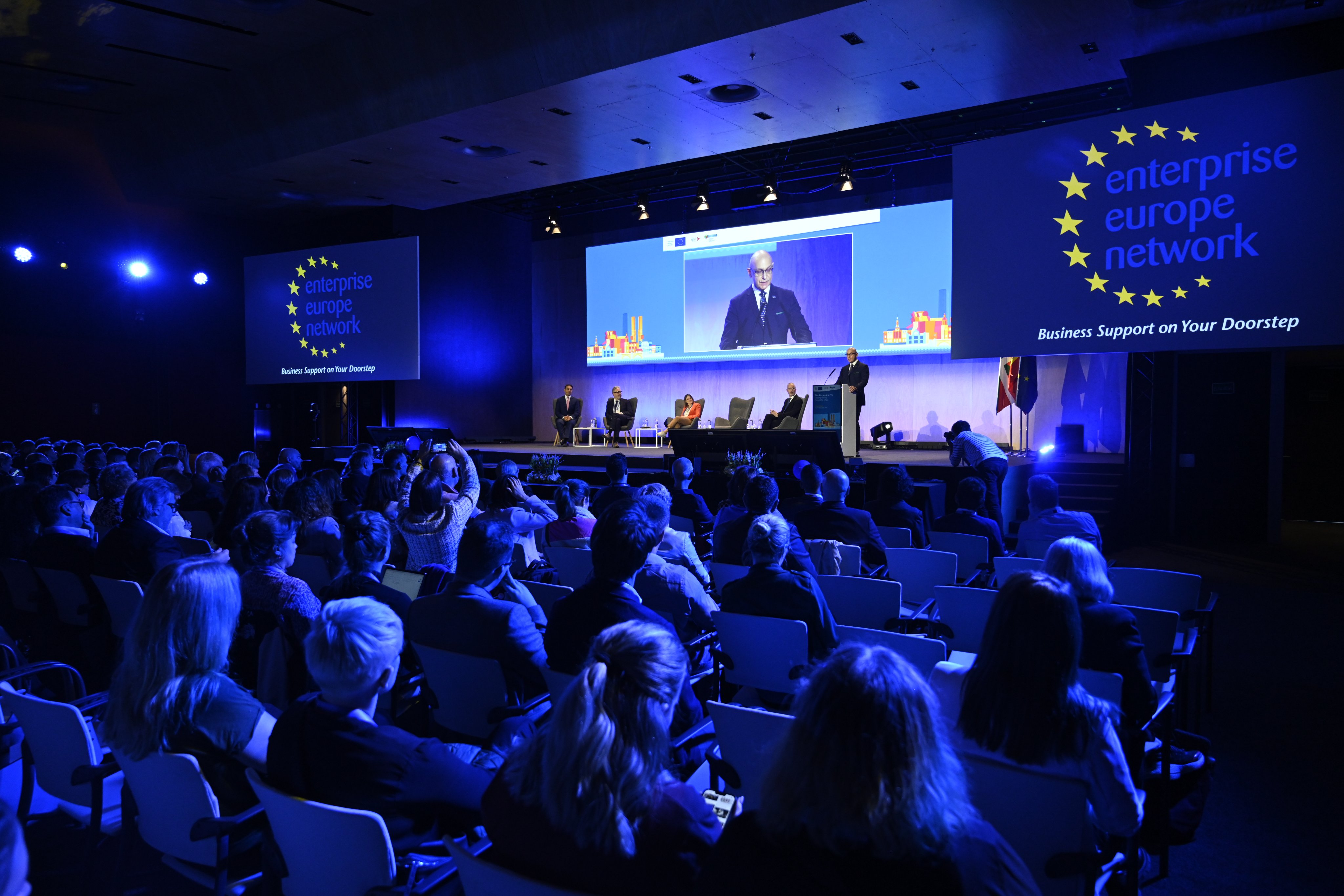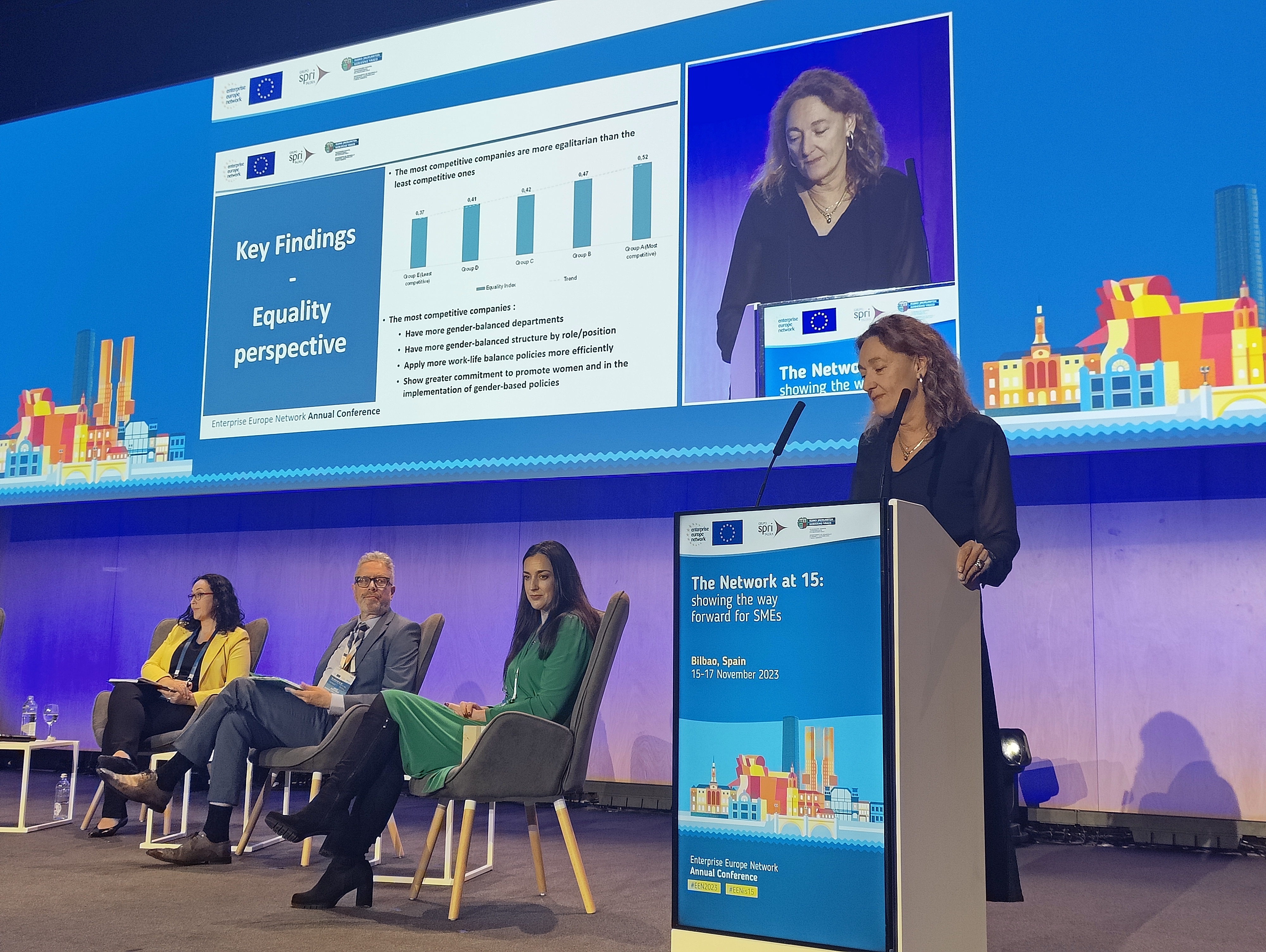The Institute for Business Competitiveness of Castilla y León (ICE), a member of DIGIS3, participated on 15, 16 and 17 November in the annual meeting of the Enterprise Europe Network (EEN) in Bilbao. Leading experts from the business world, network partners and representatives of the European Union and the private sector met there to discuss cutting-edge strategies and support mechanisms for SMEs.

The meeting, held at the Bilbao Exhibition Centre, commemorated the 15th anniversary of the network and its role in "helping companies to improve their international competitiveness". The conference covered key issues around internationalisation, innovation, support for start-ups and access to finance, among others, and set out three main objectives:
- Explore how the network can drive the European industrial transition towards a green, digital, and resilient economy.
- Exchange practices to improve the quality and visibility of the network's business support services.
- Foster collaboration across the network to build a strong support system for SMEs.
ICE has shared the venue with numerous entities with the aim of exchanging strategies on business support services to better respond to the needs of SMEs. The event consisted of a total of three days of networking with more than 1,000 top international experts in innovation from 50 different countries, as well as a multitude of companies and entrepreneurs who took advantage of the services of the EEN with its presence in Spain.

In addition to attending the event for the role it plays in promoting the competitiveness of companies, the DIGIS3 member organisation was nominated as a partner of EEN Galactea Plus - a consortium of the Enterprise Europe Network in north-west Spain - for one of the EEN Awards. The work of five European regions has been recognised with the second prize, with Castilla y León having contributed through ICE to the success of the Fortissimo project, a startup that revolutionises classical music education through the strategic collaboration of a consortium of 24 partners from 14 European countries and an approach using gamification technology and virtual reality.